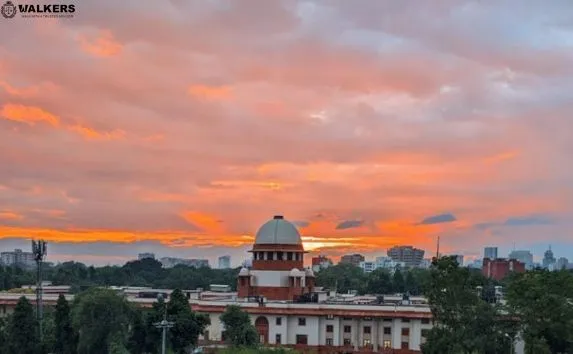


The Gujarat Sales Tax Act, 1969 has been the subject of a recent ruling by the Supreme Court, which found that penalty and interest levied under certain sections of the Act are mandatory and cannot be subject to the discretion of the Commissioner or Assessing Officer. Justices M.R. Shah and B.V. Nagarathna made the decision after noting that the penalty under Section 45(6) is automatic once a dealer is deemed to have failed to pay the relevant tax, and that there is no room for considering any mens rea on the part of the dealer. The ruling is likely to have implications for how such penalties are applied and enforced going forward.
In a recent case, the Supreme Court overturned the judgment of the Gujarat High Court that had set aside the levy of penalty and interest on an assessee. The respondent in the case, M/s Saw Pipes Ltd, had opted for payment of lumpsum tax under Section 55A of the Gujarat Sales Tax Act, 1969, and deposited tax at the rate of 2% on sales by treating it as a civil works contract. However, the Assessing Officer found that the tax liability was much higher, and the company had failed to pay the correct amount. The High Court had set aside the penalty and interest on the grounds of bonafide opinion and payment of enhanced tax, but the Supreme Court ruled that neither of these justifications was valid for deletion of penalty and interest under Sections 45(6) and 47(4A) of the Act. The ruling is expected to have implications for similar cases in the future.
The Gujarat Sales Tax Act, 1969 has been the subject of a recent case in which an Assessing Officer (AO) passed an order against the respondent assessee, M/s Saw Pipes Ltd, stating that their contract of coating pipes did not fall under the civil works contract category and therefore the composition amount was not payable at the rate of 2% as deposited by the assessee. The AO also levied penalty and interest under Sections 45(6) and 47(4A) of the Act, which was confirmed by the Income Tax Appellate Tribunal (ITAT) on appeal.
However, the Gujarat High Court later set aside the penalty and interest on the grounds that the enhanced tax imposed by the AO had already been paid by the assessee and that the company had acted in good faith by believing it was liable to pay tax at the rate of 2%, rather than 12%. The case highlights the importance of proper understanding and compliance with tax regulations, as well as the potential for legal challenges in cases where parties believe they have acted in good faith.
The Supreme Court recently ruled on an appeal filed by the revenue department against the decision of the Gujarat High Court that had set aside the levy of penalty and interest on the respondent assessee. The revenue department argued that the language used in Section 45 (6) and Section 47(4A) of the Gujarat Sales Tax Act mandated the levying of penalty and interest on the assessee.
The Supreme Court noted that the High Court had set aside the levy of penalty and interest on the ground that the assessee did not have mens rea in not paying the tax at the applicable rate of 12%. The court held that the penalty leviable under Section 45(6) is a statutory penalty, and there is no discretion vested with the Commissioner to levy or not to levy the penalty.
The Supreme Court further noted that Section 45 of the Act is precise, plain, and unambiguous, and the intention of the legislature is clear that the penalty shall be leviable as mentioned in Section 45(6) when any eventuality mentioned in Section 45(5) occurs. The court concluded that the penalty and interest leviable under Section 45 and Section 47(4A) of the Act are statutory and mandatory, and there is no discretion vested in the Commissioner or the Assessing Officer to levy or not to levy the penalty and interest other than as mentioned in Section 45(6) and Section 47 of the Act.
In light of this, the court allowed the appeal, set aside the judgment and order of the High Court, and restored the order of the Assessing Officer.
Case Title: State of Gujarat and Anr. vs M/s Saw Pipes Ltd
Click Here to: Download/View Related File
TAGS: tax liability penalty interest Gujarat Sales Tax Act Supreme Court High Court Assessing Officer statutory penalty mandatory unambiguous Section 45 Section 47.